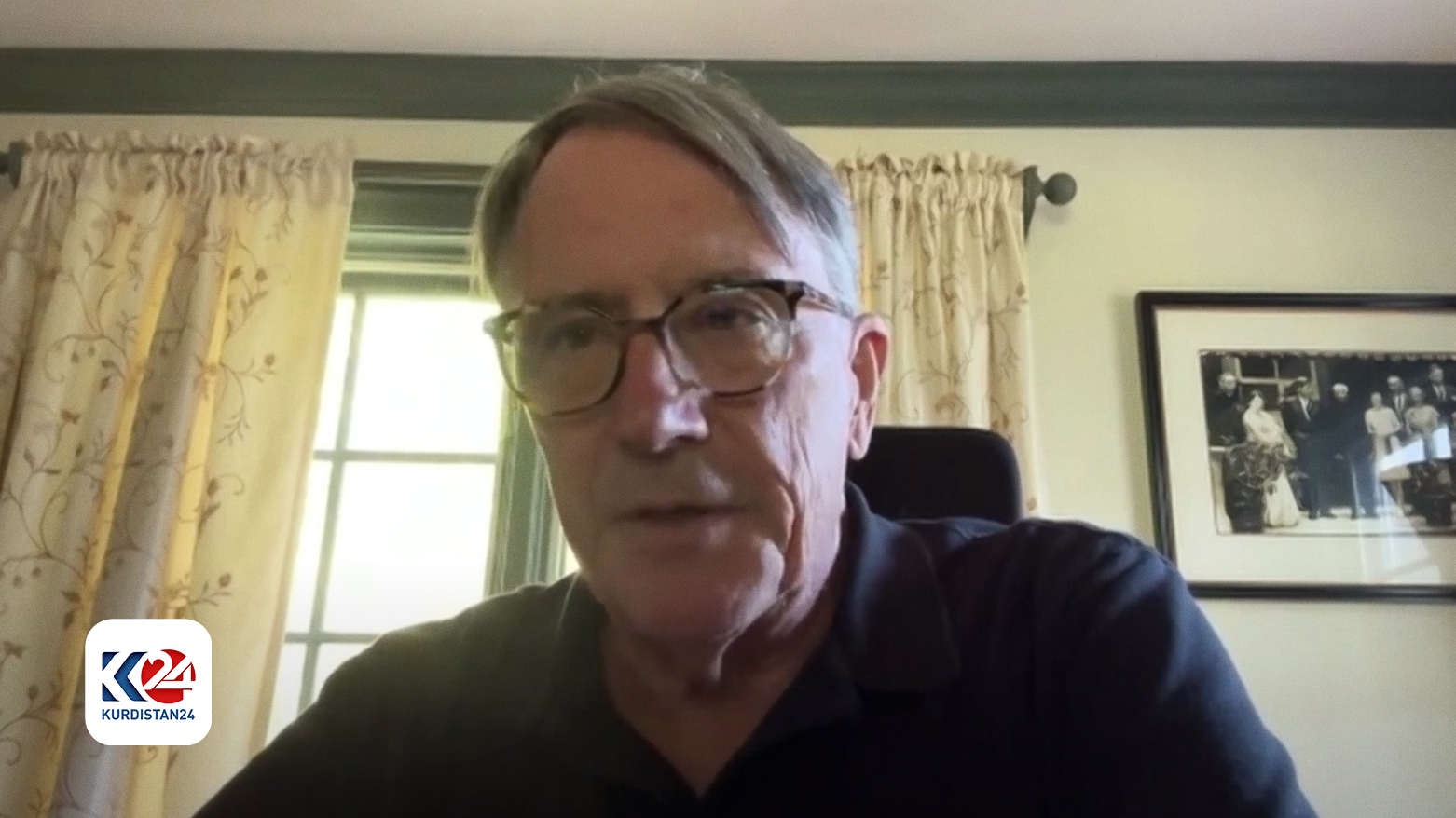Biden is a Long Time Friend of the Kurds: Peter Galbraith
“I introduced Biden to Jalal Talabani, Hoshyar Zebari, and Sami Abdul Rahman back in 1990,” Galbraith said,

WASHINGTON DC, United States (Kurdistan 24) – Amb. Peter Galbraith explained to Kurdistan 24 just what a friend of the Kurds U.S. President Joe Biden has been over the decades, going back to the 1980s, when he was a U.S. senator, a position he held from 1973 until 2009, when he became Vice-President to Barack Obama.
Galbraith, himself, has a long history of support for the Kurds, going back to the 1980s, when he was a staffer on the Senate Foreign Relations Committee (SFRC.) Biden’s membership in the committee goes back to the 1970s, soon after he was elected to the Senate, and that is how Galbraith came to know him so well.
In 1997, Biden became the lead Democrat on the Committee, then chaired by a Republican. But in 2001, as power shifted, Biden became Committee Chairman, a position he held until 2003 and again from 2008 to 2009.
Notably, Biden’s tenure as SFRC Chairman coincides with the 9/11 attacks and the war in Iraq ousting Saddam Hussein that followed. Biden supported that war.
Kurdistan 24 spoke to Galbraith, who is a Democrat, about the attempted assassination of former President Donald Trump. He condemned the violence, but as it scarcely hurt Trump, Galbraith did not think it would have much effect on the U.S. elections.
“The country is very divided,” he said, and “everyone has made up their minds.”
Biden’s Support for the Kurds
Of more interest, perhaps, are Galbraith’s remarks on Biden’s attitude toward the Kurds. Indeed, Galbraith was responsible for bringing Biden and the Kurdish leadership together.
“I introduced him to Jalal Talabani, Hoshyar Zebari, and Sami Abdul Rahman back in 1990,” Galbraith said.
On August 2, 1990, Saddam invaded Kuwait, and the U.S. counter-attack began in January 1991, driving Iraqi forces out of the sheikhdom, but ending the war with Saddam still in power.
Biden was then a senator on the SFRC and Galbraith was a staffer.
Biden “wanted to impose sanctions on Iraq, when Saddam gassed the Kurds during the Anfal campaign” in the latter half of the 1980s, Galbraith explained.
“He supported the Kurds during the uprising against Saddam” that followed the 1991 Gulf War, Galbraith continued.
President George H.W. Bush had called on “the Iraqi military and the Iraqi people to take matters into their own hands to force Saddam Hussein, the dictator, to step aside.”
And the people did revolt—the Shi’ites in the south and the Kurds in the north, but Bush did nothing. He was focused on a military coup. As a National Security Council staffer told Galbraith then, “Our policy is to get rid of Saddam Hussein, not his regime.”
Read More: The US Watches, as Saddam Crushes the Uprisings: 25th Anniversary
A decade later, in late 2002, as the George W. Bush administration prepared for the war that would oust Saddam and his regime, it dispatched the two senior leaders of the SFRC, Biden, then Committee chairman, along with the top Republican, Sen. Chuck Hagel, to Erbil to prepare the Kurdish leadership for the war coming.
In that context, as Galbraith noted, Biden “spoke to the Kurdistan parliament.” And after the regime was overthrown, “he supported the constitution of Iraq,” which, as drafted, was meant to give the Kurds far-reaching autonomy.
In 2006, as the U.S. effort in Iraq faltered, Biden, along with Leslie Gelb, then Chairman Emeritus of the Council of Foreign Relations, published an op-ed in The New York Times that proposed a decentralized system for Iraq, “giving each ethno-religious group—Kurds, Sunni Arab, and Shia Arab—room to run its own affairs, while leaving the central government in charge of common interests,” like border defense and foreign affairs.
In 2007, along with Sen. Sam Brownback, a Republican, who chaired the SFRC’s Middle East sub-committee, Biden sponsored a non-binding resolution advocating a decentralized, federal system for Iraq. It called for establishing three autonomous regions, in accord with the constitution: Kurdish, Sunni Arab, and Shia Arab.
The resolution passed overwhelmingly, by a vote of 75 to 23. It was warmly welcomed by the Kurdistan Regional Government, which issued a statement, affirming, “The people of Kurdistan, who have struggled for decades to achieve democracy and freedom, see in federalism the promise of stability and freedom from dictatorial regimes. We welcome this significant resolution in support of federalism, which guarantees the survival of Iraq on the basis of voluntary union.”
Joe Biden: “Massoud Barzani is a Good Friend of Mine”
In 2017, this reporter chanced to see Biden at a local grocery store. He was no longer vice-president, and a group of people had gathered around him, asking questions.
I joined in, asking about the Obama administration’s policy toward the Kurds. Biden responded, “Masoud Barzani is a good friend of mine, and I wished we could have done more for the Kurds.”
“Why didn’t you?” I asked. “Turkey,” he replied.
Biden’s actions during the Obama administration underscore the directness and truthfulness of that brief exchange.
In Dec. 2011, Biden, as Vice-President, made another visit to Erbil. On that occasion, Biden asked Masoud Barzani to reciprocate and come to Washington, which he did the following April.

In Washington, Masoud met with Biden, and Obama joined in their meeting, as the two leaders met for the first time.
The meetings were related to Obama’s decision to withdraw U.S. forces from Iraq, which happened the following month. However, the decision was quite ill-advised. ISIS emerged a mere three years later, and Obama was obliged to send U.S. forces back to Iraq.
Thus, in April 2016, as U.S, forces and Kurdish Peshmerga together battled ISIS, Biden again visited Erbil, where he was warmly welcomed by the Kurdish president.
.jpeg)
